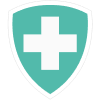Safety & Health Guidelines

1. Essential Safety Tips for Boating
Wear Life Jackets
Life jackets are a must for every passenger on board. Make sure each guest has a properly fitted life jacket and knows where they are stored on the boat.
Follow Capacity Limits
Each boat has a maximum capacity. Avoid overloading to ensure stability and safety on the water.
Check the Weather
Always check the weather forecast before heading out. Avoid boating in severe weather conditions, as storms and high winds can be dangerous.
Carry Safety Equipment
Equip your boat with essential safety items, including a first-aid kit, fire extinguisher, flashlight, flares, and a whistle. These items can make a critical difference in emergencies.

2. Health Precautions for Boaters
Stay Hydrated
Bring plenty of water to stay hydrated, especially on sunny days. Dehydration can happen quickly under the sun, so encourage everyone to drink water regularly.
Sun Protection
Use sunscreen with SPF 30 or higher, wear a hat, and consider protective clothing to prevent sunburn. Sunglasses with UV protection are also recommended to protect your eyes from the sun’s glare.
Prevent Seasickness
If you or your guests are prone to seasickness, consider taking anti-nausea medication before setting out. Fresh air and focusing on the horizon can also help alleviate symptoms.
Know the Signs of Heat Exhaustion
On hot days, be aware of heat exhaustion symptoms, such as dizziness, nausea, and muscle cramps. Take breaks in shaded areas and stay cool.

3. COVID-19 Health and Safety
Sanitize Surfaces
Before and after each trip, sanitize frequently touched surfaces on the boat, like handrails, seats, and equipment.
Practice Social Distancing
Limit the number of guests if necessary to allow for ample space on the boat.
Hand Hygiene
Encourage guests to use hand sanitizer or wash their hands frequently. Provide sanitizer onboard if possible.

4. Emergency Preparedness
Create an Emergency Plan
Brief all passengers on emergency procedures, including where safety equipment is stored and how to use it.
Know Basic First Aid
Familiarize yourself with basic first aid, such as treating cuts, burns, and other minor injuries that could occur while boating.
Have a Communication Device
Keep a fully charged mobile phone or, if possible, a VHF radio on board to communicate with emergency services if needed.

5. Environmental Responsibility
Respect Marine Life
Avoid disturbing wildlife, and keep a safe distance from marine animals. Feeding or touching wildlife is discouraged.
Dispose of Waste Properly
Keep trash on board and dispose of it correctly when you return to shore. Never throw garbage into the water, as it harms marine ecosystems.
Use Eco-Friendly Sunscreen
Select sunscreens that are labeled as reef-safe, as they are less harmful to marine life and coral reefs.
More Resources
Contacts
1901 Thornridge Cir. Shiloh,
Hawaii, 81063
example@gmail.com
+ 123 456 789
Customer service opening hours
Lorem Ipsum is simply dummy text of the printing and typesetting industry.Lorem Ipsum is simply dummy text of the printing industry.Lorem Ipsum is simply dummy text of the printing industry.Lorem Ipsum is simply dummy text of the printing industry.
Blog
Lorem Ipsum is simply dummy text of the printing and typesetting industry.Lorem Ipsum is simply dummy text of the printing industry.Lorem Ipsum is simply dummy text of the printing industry.Lorem Ipsum is simply dummy text of the printing industry.
Policy
Lorem Ipsum is simply dummy text of the printing and typesetting industry.Lorem Ipsum is simply dummy text of the printing industry.Lorem Ipsum is simply dummy text of the printing industry.Lorem Ipsum is simply dummy text of the printing industry.